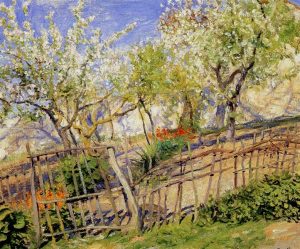Matthew 10:24-39
This text is used for the Lectionary Year A on June 18, 2017.
 Those who think of Jesus as a kind of religious wallflower will be surprised by Matthew 10:24-39. Upon careful consideration of the passage, they will find that their wallflower image of Jesus says more about them than the Jesus Matthew portrays here and elsewhere. A wallflower Jesus allows for a wallflower Christianity. In this passage, Jesus brings the hammer to that kind of Christianity.
Those who think of Jesus as a kind of religious wallflower will be surprised by Matthew 10:24-39. Upon careful consideration of the passage, they will find that their wallflower image of Jesus says more about them than the Jesus Matthew portrays here and elsewhere. A wallflower Jesus allows for a wallflower Christianity. In this passage, Jesus brings the hammer to that kind of Christianity.
There are several threads running through this passage, and depending on which one wants to pull, one can go in several directions. Overall, the picture Jesus seems to be portraying goes like this:
(1) I, Jesus, do things that will get one in trouble.
(2) Inasmuch as you, disciples, do what I do, you’ll get in trouble too.
(3) But don’t worry too much about that as you’ll be taken care of.
(4) If you find yourself overly worried about getting into trouble that means you are confused in one of four ways:
(4a) that the things I do are not so significant that they should cause trouble;
(4b) that who I am is not so significant that what I do should matter very much;
(4c) that the significance of what I do and who I am do not bear on your long-term welfare;
(4d) or, all the above.
Each of 1-4 deserve its own sermon, and probably a sermon series, and each preacher will have to decide whether the respective threads can be pulled without the whole picture Matthew offers in chapter 10. In Bible Belt-like cultures, 1 and 2 may need to be highlighted given the way Christianized cultures tend to domesticate the wildness of the Gospel (i.e., 1 and 2). In cultures where Christians are under threat because of their living out 1 and 2, sermons on 3 and 4c will prove edifying. There is also a tendency of Christians to mistakenly read 3 in a way that undercuts the power of 1 and 2 as if Christ’s sufficiency somehow has meaning apart from Christ’s Lordship. Dietrich Bonhoeffer famously called this tendency “cheap grace.” It may be then the case that without the whole picture 1-4 gives us, we will be fated to 4d.
If one can proceed with the whole picture in mind—one where, say, God’s sufficiency does not so much as ease the cost of following Jesus as render fully the measure of that cost, so costly that only God could pay it—then one can begin to make sense of Jesus’ amazing claim that he did not “come to bring peace, but a sword” (v. 34).
Sometimes while paying the costs of discipleship, one will wonder whether God ever intended the costs to be as high as they are. V. 35 should put an end to that wonderment. God meant it. There can be, according to the Matthean Jesus, nothing that competes for our loyalties and affections. Jesus is fully willing to identify and call out what in his culture would surely have placed second in its pecking order and say that even our second loves are not allowed to come to close; there can be, as the twentieth-century theologian Karl Barth said, “no second God.” For Jesus, the right relationship to our other loves is not one of hierarchical sequence (that we, for example, love God more than parents) but outright animus, a setting “against” one’s family. Matthew’s version of this notion may not be as straightforward as Luke 14:26’s “Whoever comes to me and does not hate father and mother, wife and children, brothers and sisters, yes, and even life itself, cannot be my disciple” but the same profound relativizing of one’s commitments remains the same.
It is only the gracious sufficiency of Christ’s given life that makes sense of his tough-minded severity. In his being persecuted and maligned (v. 25), in his sacrificed and given body (v. 28), in his being counted less than the sparrows (v. 31), in his father’s denial of him (v. 33), in his separation from his family (v. 35), in his losing life (v. 39), that is, in his “taking up the cross” (v. 38) so that others “might find their life” (v. 39) we begin to make sense of Christ’s decidedly un-wallflowery call to faith. He calls us to what he himself does and thereby enables, and in so doing, gives us a fuller picture than we will ever need (maybe ever want) of what it means to follow Jesus. The troubles that come with following Jesus (symbolized in 1 above) will not tempt us to confusions (4 above) so long as we live into the reality of that if our troubles come from following Jesus (2) Jesus himself will take care of us (3).
1-3 above can be summarized thusly: In calling us to obedience, Jesus calls us to himself. As Paul finds God saying in answer to his own troubles, “My grace is sufficient for you, for my power is made perfect in weakness.” Paul can “boast all the more gladly about my weaknesses” only because those weaknesses brings him closer to God, where “Christ’s power may rest on me” (2 Corinthians 12:9 NIV). After telling his disciples here that their value to God means they can take up a form of life that will get them in trouble, Jesus later on in Matthew completes the picture when he says to them, “And everyone who has left houses or brothers or sisters or father or mother or children or fields, for my name’s sake, will receive a hundredfold, and will inherit eternal life” (Matthew 19:29 NRSV).
 Jonathan Tran
Jonathan Tran
Associate Professor of Religion and Faculty Steward of Honors Residential College
Baylor University
Jonathan_Tran@Baylor.edu
Tags: inheritance, wallflower, surrender, weakness, strength
